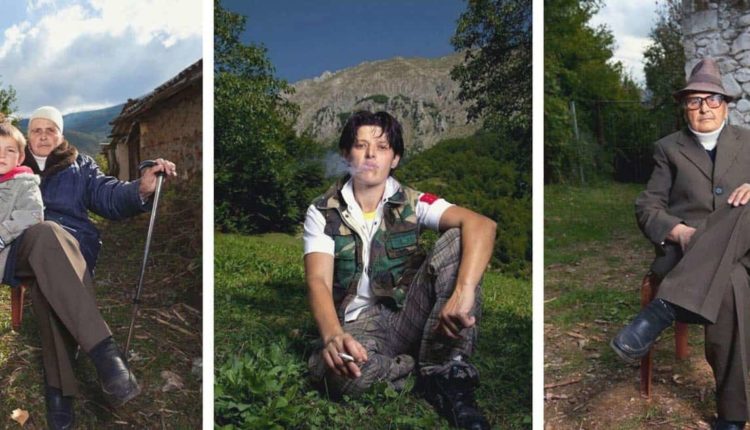Only a dozen “sworn virgins” are left in the world, as an ancient Balkan tradition where women live as men dies out.
“Albania was a man’s world, the only way to survive was to become one,” says Gjystina Grishaj.
As a 23-year-old woman living in the mountains of north Albania, she made a decision that would change her life.
She swore a vow of celibacy and promised to live the rest of her life as a man.
Gjystina’s family have lived in the Malësi e Madhe region of Lëpushë for more than a century. A valley deeply nestled between craggy mountains, it is one of the few areas where the burrnesha tradition still exists: a centuries old practise in which women swear an oath to village elders, and live as men.
These women are known as the burrneshat, or sworn virgins.
“There are many unmarried people in the world but they are not burrneshat. A burrnesha is dedicated only to her family, to work, to live, to preserve her purity,” says Gjystina, now aged 57.
For many women born in earlier times, exchanging their sexual, reproductive and social identities was a way to enjoy freedoms only men could experience.
Becoming a burrnesha allowed women to dress as men, to act as head of the household, to move freely in social situations, and to take on work traditionally open only to men.
As a sporty, active young woman, Gjystina – or Duni, as she is known to those closest to her – was determined to be independent. She never imagined a traditional life for herself of marriage, housework, wearing dresses…
Instead, following the death of her father she decided to become a sworn virgin, in order to lead the family and be able to take on work to support them financially.
“We were extremely poor… my father died, and my mother had six children, so in order to make it easier for her, I decided to become a burrnesha and to work hard,” she says.
Gjystina lives in a remote village; mobile phone reception is sparse at best, and harsh winters mean the road to Lepushe is often blocked with snow and the electricity is cut off.
She runs a guest house, works the land and tends to her animals.
As a burrnesha and head of the household, she also practises the art of medicinal herbs to make healing teas and oils, a skill inherited from her father.
“He cared a lot about medicinal herbs and passed the lessons on to me. And I want my niece Valerjana to inherit this practice, even though she has chosen another path,” says Duni.
Source: BBC


Comments are closed.